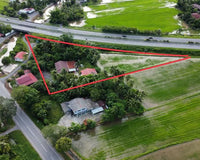When it comes to finding the perfect location for a gas station, there are several key factors to consider. As an expert in the industry, here are 10 top tips to help you identify the ideal spot for your business:
1. Analyze Traffic Patterns
One of the most important factors to consider when choosing a gas station location is the traffic patterns in the area. Look for high-traffic areas, such as busy intersections or highways, where drivers are likely to stop for fuel.
2. Consider Visibility
Visibility is crucial for a successful gas station. Make sure your location is easily visible from the road and accessible to passing drivers. A prominent location can attract more customers and increase your business.
3. Evaluate Competition
Take a look at the competition in the area. If there are already several gas stations nearby, it may be challenging to compete. Consider locations where there is less competition to maximize your chances of success.
4. Check Zoning Regulations
Before finalizing a location, be sure to check the zoning regulations in the area. Make sure that the property is zoned for commercial use and that there are no restrictions that could impact your business.
5. Assess Surrounding Businesses
Consider the surrounding businesses and amenities in the area. A gas station located near restaurants, shopping centers, or other attractions may attract more customers. Look for locations with complementary businesses to increase foot traffic.
6. Think About Convenience
Convenience is key for a successful gas station. Choose a location that is convenient for drivers to access, with easy entry and exit points. A convenient location can help attract repeat customers and increase sales.
7. Consider Safety and Security
Safety and security are important considerations for any business. Choose a location that is well-lit and in a safe area to help ensure the security of your customers and employees. Consider installing security cameras and alarms for added protection.
8. Look at Demographics
Consider the demographics of the area when choosing a gas station location. Look for locations with a high population density, a large number of commuters, or a high percentage of drivers. Understanding the demographics can help you target your marketing efforts effectively.
9. Evaluate Land Costs
Land costs can vary significantly depending on the location. Consider the cost of purchasing or leasing the property, as well as any additional expenses for site development. Choose a location that fits within your budget and offers a good return on investment.
10. Seek Expert Advice
Finally, don't hesitate to seek advice from industry experts or consultants when choosing a gas station location. They can provide valuable insights and help you make an informed decision. Consulting with professionals can help you avoid common pitfalls and maximize the success of your business.









